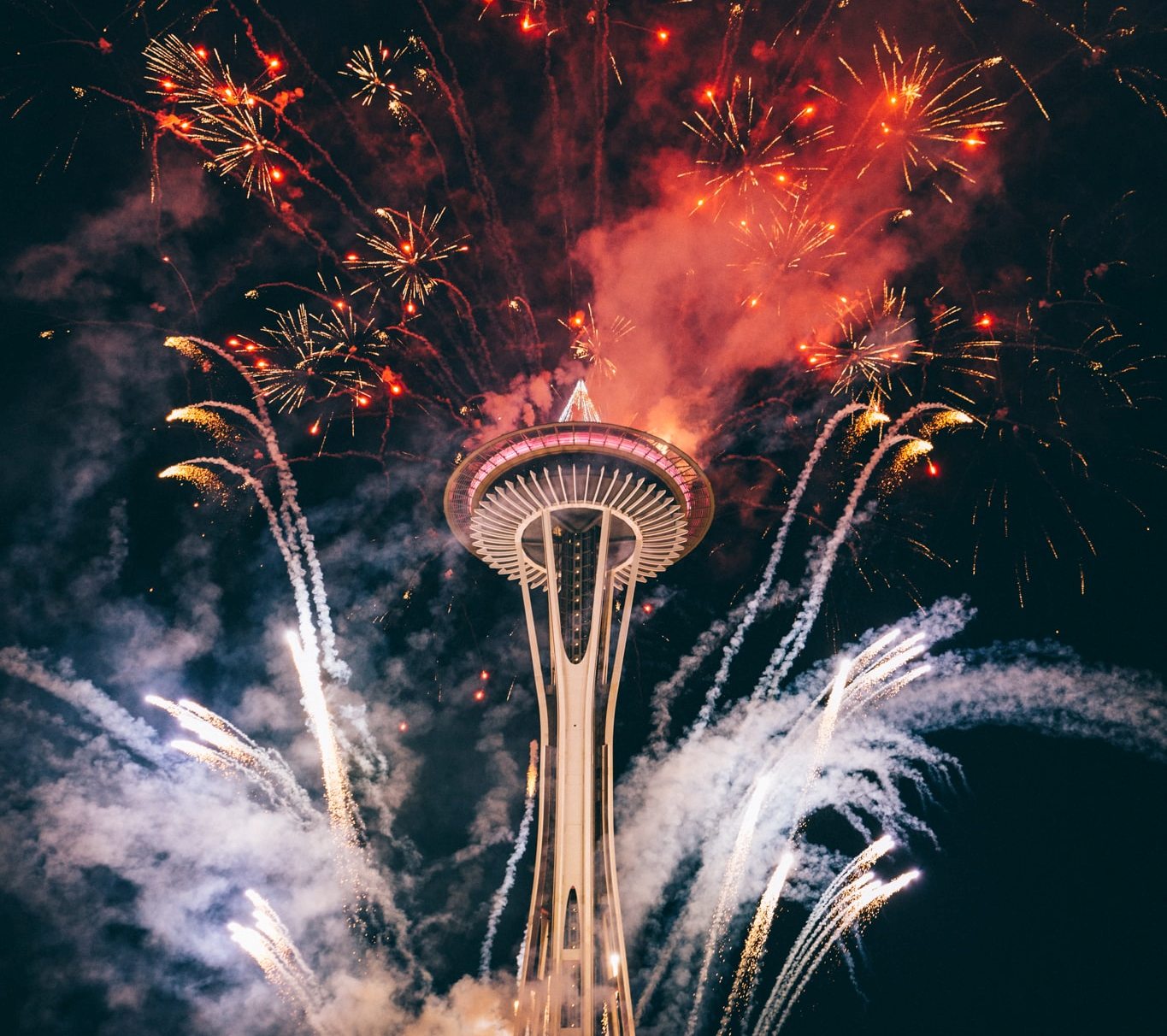Tomorrow, Americans will gather at backyards, stadiums, parks, and pools all around the country to barbecue, celebrate, and set off fireworks in honor of Independence Day.
For most, this is a fun time to gather with family and friends and watch or partake in some fun fireworks displays.
But for so many people, fireworks can be triggering and are an incredibly difficult experience to get through. As a therapist treating anxiety and trauma here in Washington, D.C., this is a problem that has come up for many of my clients and can make July 4th and the nights surrounding it truly challenging.
The barrage of loud, explosive sound can elicit a trauma response or overwhelm a sensitive or dysregulated nervous system, causing a physiological reaction most people are familiar with as the “fight-or-flight” (or freeze) response. This is an automatic, unconscious survival response—so even if someone knows logically that they are safe, their body is reacting as if a life-threatening danger is imminent, activating the sympathetic nervous system to elevate their heart rate, tense major muscle groups, speed up breathing/hyperventilate, raise alertness or vigilance level, or sometimes overwhelm someone into a numb, shut-down mode.
Fireworks can trigger people with PTSD, cognitive & sensory disabilities, people who are autistic, people with anxiety & more.
Just put your fireworks away.
— Mx. Charis Hill ♿?️⚧️ (they/them) (@BeingCharisBlog) July 2, 2022
Whether that response to fireworks is due to PTSD from war or combat experience, or due to witnessing a shooting (which is affecting more and more people now—especially here in D.C. as gun violence has been steadily on the rise since the beginning of the pandemic), or due to sensory issues (anxiety, ASD, highly sensitive, or otherwise non-neurotypical people), it is a common trigger and something to be aware of and prepared for as we celebrate this holiday weekend.
If you or a loved one struggle with feeling triggered by fireworks, know that there are several ways to prevent or soothe the fight-flight-freeze response. The goal is to shift back to and keep the parasympathetic nervous system working for us in a calm “rest and digest” state rather than letting the sympathetic nervous system hijack our brain and body.
Here are ways to do that:
Prepare ahead of time with coping strategies, and make/communicate plans.
If you can plan to be somewhere away from the noise, that’s great. If you are going to be somewhere you can hear fireworks, do you have an exit strategy worked out if needed? Can you bring noise-canceling headphones and listen to music? Would a fidget help to occupy your hands and distract you from discomfort? Think ahead about what you might bring with you, and how your friends or family members could help you if needed, and be sure to communicate these plans in advance.
Start with a good baseline in your nervous system.
If you have an exam, you sleep well the night before, have a good breakfast, and maybe take a walk or run that morning, so that your mind and body are in as good of a place as possible as you enter a stressful situation. You don’t want to be hungry, overtired, or wired before an important event right? The same goes for an anxiety-inducing situation like fireworks: prepare your coping skills beforehand, get plenty of rest the night before and be sure to eat and be active the day of—this helps you start with a good baseline that can absorb more stress.
Practice deep breathing before and during the noise.
Diaphragmatic breathing or “belly breathing” is our best brain hack for turning off “fight-or-flight” and returning to rest state. Try 4-7-8 breathing: in through your nose for a count of 4, hold for a count of 7, out for a count of 8, repeat for a few minutes or until calm.
Ground your body into the present moment of safety using your five senses.
Notice what you can see, taste, smell, touch, and hear other than the fireworks. Focus intently on bodily sensations that are pleasant or not upsetting, like the taste of dessert or the feeling of the tip of your nose (this is a good spot to focus on!).
Use encouraging, non-judgmental, compassionate self-talk (or coaching if it is for your friend or family member).
In a calm voice, use reminders like “This is hard, but it is very temporary,” “These feelings and the noise will pass,” “My body is reacting to protect me, and I know I am safe,” “I am doing my best and doing a great job getting through this,” and “I am going to be okay.” Choose a statement that feels true, helpful, and soothing for you personally.
If you become overwhelmed or highly distressed, try using TIPP skills to shift your physiological state:
>> Change Temperature (splash cold water on your face or drink something cold)
>> Interval exercise (do jumping jacks or burpees to use some of the adrenaline in your body)
>> Paced breathing (like 4-7-8 from above)
>> Progressive muscle relaxation (tense your muscles for a few seconds then release, in order from toes up thru legs, core, arms/hands, neck, and head)
Use any or all of these strategies, and above all, remember that this is a nervous system response to be aware of for yourself or others and not weakness or personal fault of any kind. If this July 4th is difficult, consider talking with a therapist to work on more ways to prevent and soothe trigger responses.
Wishing everyone a happy, safe, and peaceful holiday celebration!
~
Please consider Boosting our authors’ articles in their first week to help them win Elephant’s Ecosystem so they can get paid and write more.











Read 1 comment and reply